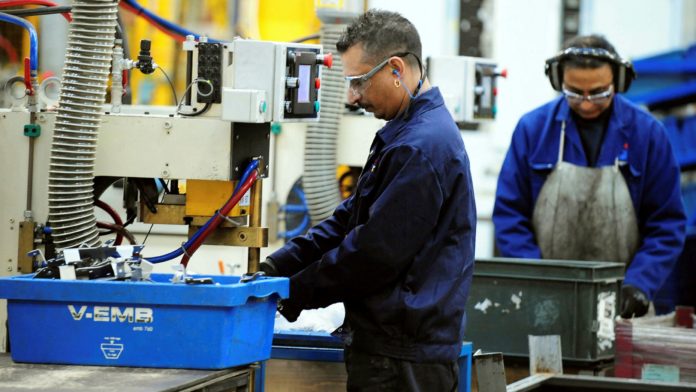A report out this morning outlines the damage that the lockdown is doing to the British economy and questions how much longer it can continue without damaging the country irreversibly.
The report by the Centre for Economic and Business Research says the manufacturing sector is set to see the highest fall in output in absolute terms, as workers producing goods and services that are not deemed to be essential cannot do so remotely and because export demand and sometimes domestic demand have fallen sharply.
This is estimated to cost the economy over £500m per day with production in the sector down 69%.
The scale of the fall is important since most of the government schemes to provide relief for businesses are focused towards the service sector.
The accommodation and food services sector, non-food retail and construction sector are also expected to be disproportionately impacted. Here, they estimate GVA per day falls of £172m (79% of pre-crisis levels), £156m (55%) and £237m (50%) respectively.
For non-food retail sales, there is likely to be some substitution to online sales, although not nearly enough to outweigh the closure of physical stores.
In relative terms, says the report, the services sector is likely to be less severely impacted, due to a greater ability to work remotely.
Had this crisis occurred at a time when remote working was less feasible, the loss of economic activity would likely have been significantly higher. However, worker sickness and reduced business confidence is still expected to have a significant impact.
A few sectors are likely to contribute more to the economy due to the Corona-driven lockdown. Most notably they anticipate food and drink retail trade to be up 22%. This is due to both stockpiling and the temporary closure of restaurants and cafes causing more household consumption.
The impacts only consider the fall in output under the current level of restriction, which is scheduled to run until at least April 12th.
However, evidence from China suggests that it won’t be easy to immediately revert to pre-crisis levels of production, as businesses will continue to be constrained by strict public health measures to prevent a second outbreak.
Commented Cebr founder and Deputy Chairman Douglas McWilliams:
“‘these results show that the manufacturing sector, as well as the more obvious sectors such as retail and leisure, is one of the more badly hit by the virus and economic slowdown. Many of the government measures do little to help capital intensive sectors like manufacturing, which benefits relatively less from furloughing employees and is essentially excluded from rate relief. It is likely therefore that Chancellor Rushi Sunak will need to look again at how to help this sector to prevent fundamentally viable firms from going under’.







